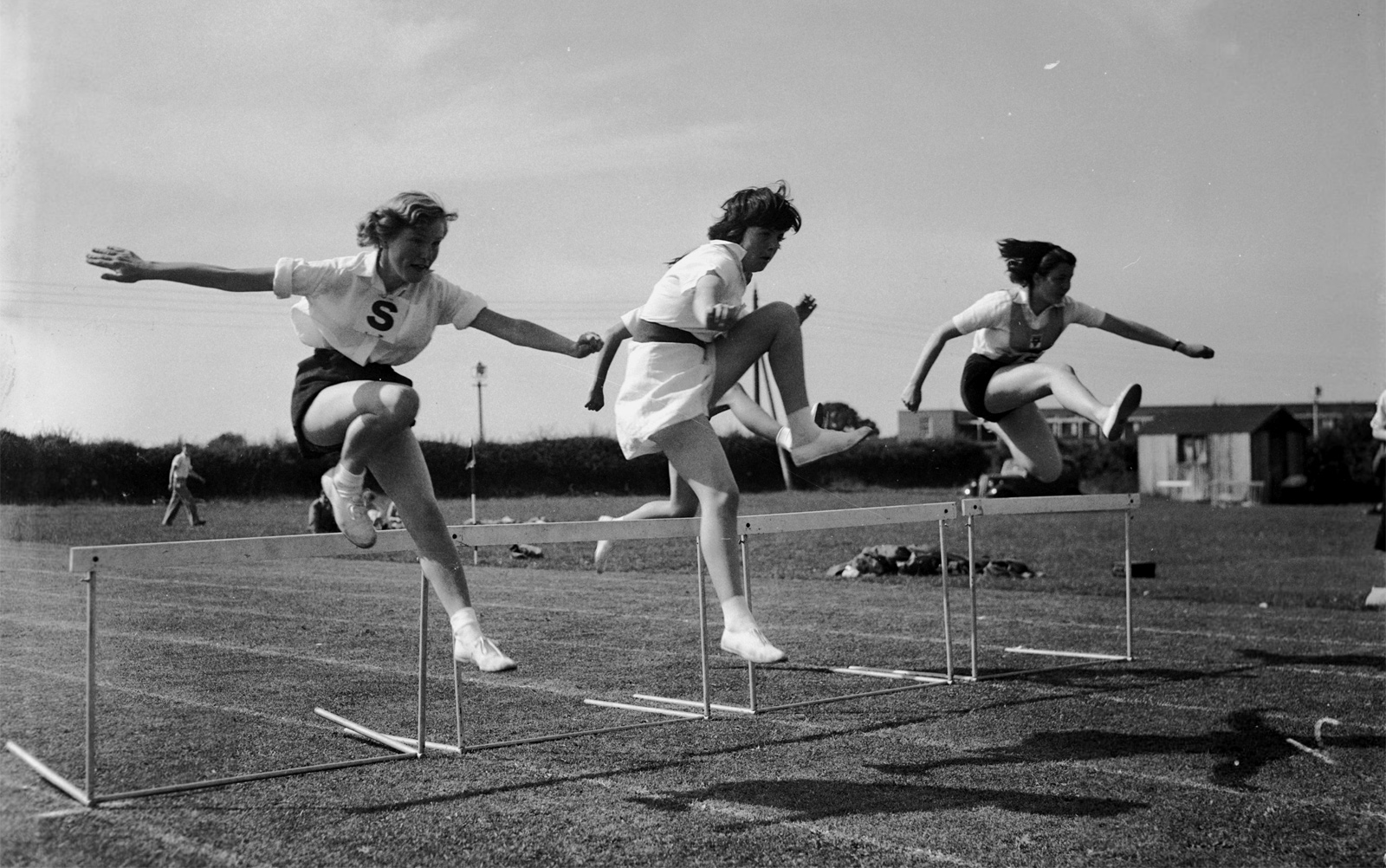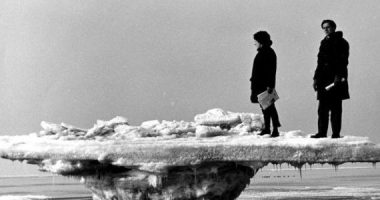
Hurdles race at Shrewsbury, 1953 | Geoff Charles, The National Library of Wales | CC BY-NC-ND 2.0
News reports on climate change are shocking and generally leave little room for hope. Laura Tenenbaum, science communicator and senior science editor for the NASA website Global Climate Change: Vital Signs of the Planet and blog Earth Right Now, urges us to take up the challenge as an opportunity to care for the planet and to take action. Laura Faye Tenenbaum is a member of the jury of the Cultural Innovation International Prize, which this year rewards projects that address the challenge of climate change.
Climate change news is intense. Ice caps are melting, the fire season lasts all year long; we have epic storms plus record-breaking floods, droughts and cyclones.
And this year will undoubtedly be the Hottest. Year. Ever.
As the senior science editor for NASA’s Global Climate Change website, literally every day I’m bombarded with comments and questions that go something along the lines of: “I just don’t know if there’s anything I can do about climate change,” and “Is it too late?” and “I’m afraid of a terrible catastrophe.”
Yet, when I wake up in the morning I’m excited to come to work. I’m energized, amped; really amped. Why? Because global warming is the greatest challenge of our lives, and challenge is what drives us. Challenge is what moves us. Challenge is exciting. It provides us with opportunity and forces us to grow. It opens the way for amazing achievement. Without challenge, without struggle, without discomfort, no one would ever advance.
Yes, we’ve been burning fossil fuels such as coal, oil and gas, which add carbon dioxide and other heat-trapping gases to our atmosphere. And you already know this has caused an increase in Earth’s surface temperature. And yes, it’s true that as much as 90 percent of that heat is being absorbed and stored in our oceans. And warm water expands, so added to the extra water flowing into the ocean from melting glaciers and ice sheets, it is causing sea level rise. We’ve added a lot of heat energy to warm the oceans, and because water is so good at storing heat, it will remain that way for a long time.
This means that even after we’ve totally transitioned away from fossil fuels, even after we’ve stopped adding heat to our environment, it will take many hundreds of years for the ocean to release all the heat that it stored. So you and me and everyone on Earth today, and many future generations, we are all in this for the long run. We’re going to feel the impacts of today’s climate change for a long, long time. Which means we’ll have extraordinarily difficult challenges to deal with.
Nonetheless, I’m not telling you this to scare you, but to empower you, so we can make a difference—you and I, together. Yes, global warming is probably the greatest challenge of our lives, but denying the science, or trying to avoid facing reality, or becoming so upset that you feel helpless aren’t solutions.
Can you imagine if we NASA peeps just sat there saying “Oh no, that’s too hard” when faced with huge obstacles? Are you kidding me? Come on! You think it’s easy to build science instruments on satellites and launch them into space? You think it’s easy to measure glaciers melting around the edges of Greenland, or the condition of coral reefs in the Pacific, or plankton blooms across the North Atlantic? We have problems, troubles, obstacles, difficulties almost every day. That’s what experimentation is. And when the going gets tough we don’t just stop. We keep working. So even though someone somewhere has to troubleshoot something every step of the way, we’re excited about the work. We know that grit and determination will get you everywhere!
And when someone who works at NASA uses the word everywhere, they actually mean everywhere.
At the entrance to NASA’s Jet Propulsion Laboratory where I work, there’s a sign that says “Dare Mighty Things.” The way I see it, that sign is talking directly to me. “I dare you,” it says. Not to try something easy, but to run toward the challenge of climate change with confidence, strength and courage. And now I dare all of you.
For something special happens to us when we try to do what seems impossible, which is different from working toward something we know we can do. So stay powerful, strong and confident. Keep moving no matter what. Decide to care about this planet so much that you choose to make a difference.
See, all of us are natural born scientists, curious about the way the world works. And all of us have an inner science spark. And all of us need to fight to remain part of the climate change conversation, even when we feel like running, even when we feel hopeless. Especially when we feel hopeless, because climate change will continue to be one of the most important issues of out time.
So find something in this world to care about more than you care about struggle or difficulties. Find something in this world that’s so important to you that you’re willing to push through because your work is more important than your fears or your struggles.
What would happen if we decided to get pumped up about what the future might bring instead of seeing climate change as a burden that we have to drag along and bear? What if we decided to run toward climate change with power, strength and confidence?
What if we set the world on fire, not by burning fossil fuels, but by our burning desire to understand our environment?
Our shared story could be a story about not giving up and about looking forward.





Leave a comment